Wales v New Zealand: All Blacks take chances at Principality Stadium
- Published
- comments
The All Blacks are never there for the taking. This year, however, they have at least been there for the asking. They just like giving no for an answer.
So much of what Wales did on a clear-sky, chill-air night in Cardiff on Saturday was exactly as coach Warren Gatland would have wanted - an ambition in attack, a willingness to go wide, the ability to dominate possession and territory, and chances against the world champions.
So much but so little to show for it once again as New Zealand ran out 33-18 winners. History repeats itself in this contest not because no-one is listening but because it makes logical sense. The side that takes its chances wins. Ruthless beats romantic every time.
That's now 30 defeats in a row, 64 years of waiting. This was a chance to end that dreaded hoodoo, and Gatland and his players' faces afterwards indicated that they knew it.
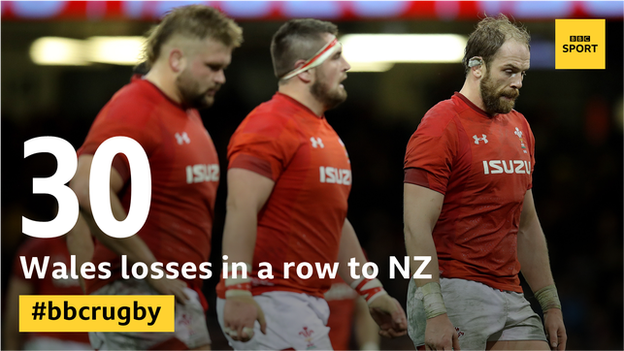
Wales started at pace and accelerated. They spent the first five minutes smashing dents in a creaking thin black line. After half-an-hour they had 81% possession and 89% territory; they had been forced into just 18 tackles to the All Blacks' frantic 90.
They were also four points down.
Waisake Naholo's first contribution to the match had been to accidentally hit his own scrum-half Aaron Smith in the chops with an unexpected pass.
Their next combination was as clinical as that had been comical: Smith running on to Rieko Ioane's initial break, weaving inside and then out, finding his winger with a perfect pass and the big man leaping to touch down one-handed inside the corner flag in routinely spectacular fashion.
It was barely a chance but the All Blacks had taken it. Wales kept creating better ones and leaving them begging instead.
Dan Biggar seized a garryowen, Steff Evans broke the line, Wales knocked on under the opposition posts. Flanker Josh Navidi made another rampaging break a few minutes later; Hallam Amos dropped the ball wide right with both overlap and try-line in sight.
"You should be embarrassed by the score, New Zealand" yelled one plaintive voice in the crowd, when Naholo somehow squeezed into the right-hand corner again just before half-time off Smith's brace of opportunistic tap-and-goes.
Of course, they never would be. Embarrassed is being behind when you should be in front. Being in front when you should be behind is what makes a team the most dangerous in the world. Feed on scraps, live like kings.
Wales came back into it with Scott Williams' fine try. It made it a one-point game at the interval, and belief fizzed around the three tiers of the packed stadium.
And nothing changed. On 50 minutes an attacking line-out five metres out after Biggar's sweet kick promised a lead but was lost to stand-in skipper Sam Whitelock instead.
Ioane charged down the left, was smothered in the tackle but still managed to get away a pass of sorts. Anton Lienert-Brown grabbed the loose ball and dived over the line. Scraps and feasts, half-chances and full value.
All that momentum and noise and hope dissipated. Five minutes later Biggar floated a pass that had been emailed to the entire World Rugby distribution list and Ioane picked it off gratefully to canter away for another.
Once again Wales narrowed the margin, Gareth Davies going blind-side off a scrum, and once again New Zealand stretched away, down to 14 after Whitelock's yellow card yet winning a free-kick against a full-strength scrum, running a slick attacking move at breathless pace to put Ioane away again off TJ Perenara's defence-sucking dummy run.
If it felt unfair to Gatland it should not prevent him from persevering with his newly liberated approach.
The Great Survivor plays familiar game
Another of Wales' old Kiwi coaches, Sir Graham Henry, was briefly known in these parts as the Great Redeemer. After a decade in charge Gatland has become the Great Survivor, and like all effective long-term coaches he understands that familiar tactics are likely to yield diminishing returns.
This was not the mythical 'Warrenball' of old. It was not even the heavily amended version we saw with the Lions last summer, with two playmakers to go with the direct runners, breakdown warriors and in-your-face defence.
It was two playmakers and a whole heap of runners, and if the intent was too seldom matched by execution, the return of Gatland's missing kingpins could put that right; Leigh Halfpenny spun and burrowed out of as many tackles as he could, but a part of you wondered every time what the injured Liam Williams might have done with the same opportunities, just as the power and pace of George North and the strength and guile of Jonathan Davies could have tipped the balance too.
Attack has always been the best way to take on the All Blacks. Their coach, Steve Hansen, even tried the same when he was Wales coach, scaring his home nation plenty in the 2003 World Cup before his dashing side of Shane Williams, Stephen Jones and Colin Charvis eventually ran out of steps and feints.
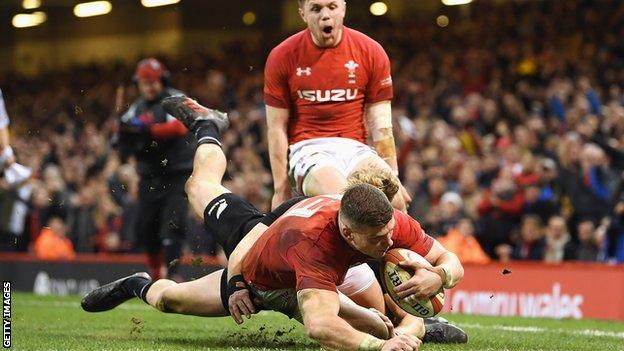
Wales trailed by just a point at half-time thanks to Scott Williams' try
But attack without precision simply creates gaps elsewhere, and chances without finishes might as well not be created at all. With the All Blacks, you're close until suddenly you're not. It is an old trick but a mighty effective one.
Appearances can be deceptive. Delilah was as ever belted out around the ground pre-match by families and old fans alike, yet is a song about a grisly misogynistic murder, with a punchline of, "I felt the knife in my hand and she laughed no more".
They can also tell you all you need to know. In their past 10 Tests coming into this match, Wales had averaged 20 points per game, the All Blacks 34. A final score on Saturday evening of 33-18 might appear cruel but it also makes perfect sense.
Wales may have been missing Williams and Davies and North, and Sam Warburton on top - and lost Rhys Webb and Jake Ball in the first half too.
Hansen was without half a team himself - Owen Franks, Dane Coles, Brodie Retallick, Jerome Kaino, Kieran Read, Ben Smith. New Zealand, the greatest attraction in the game, have also played almost half as many Tests again this year than Wales.
And so the sense of inevitability, even when Wales promised it might at last be different. A chance came on Saturday and, as ever, it slipped away.
- Published25 November 2017
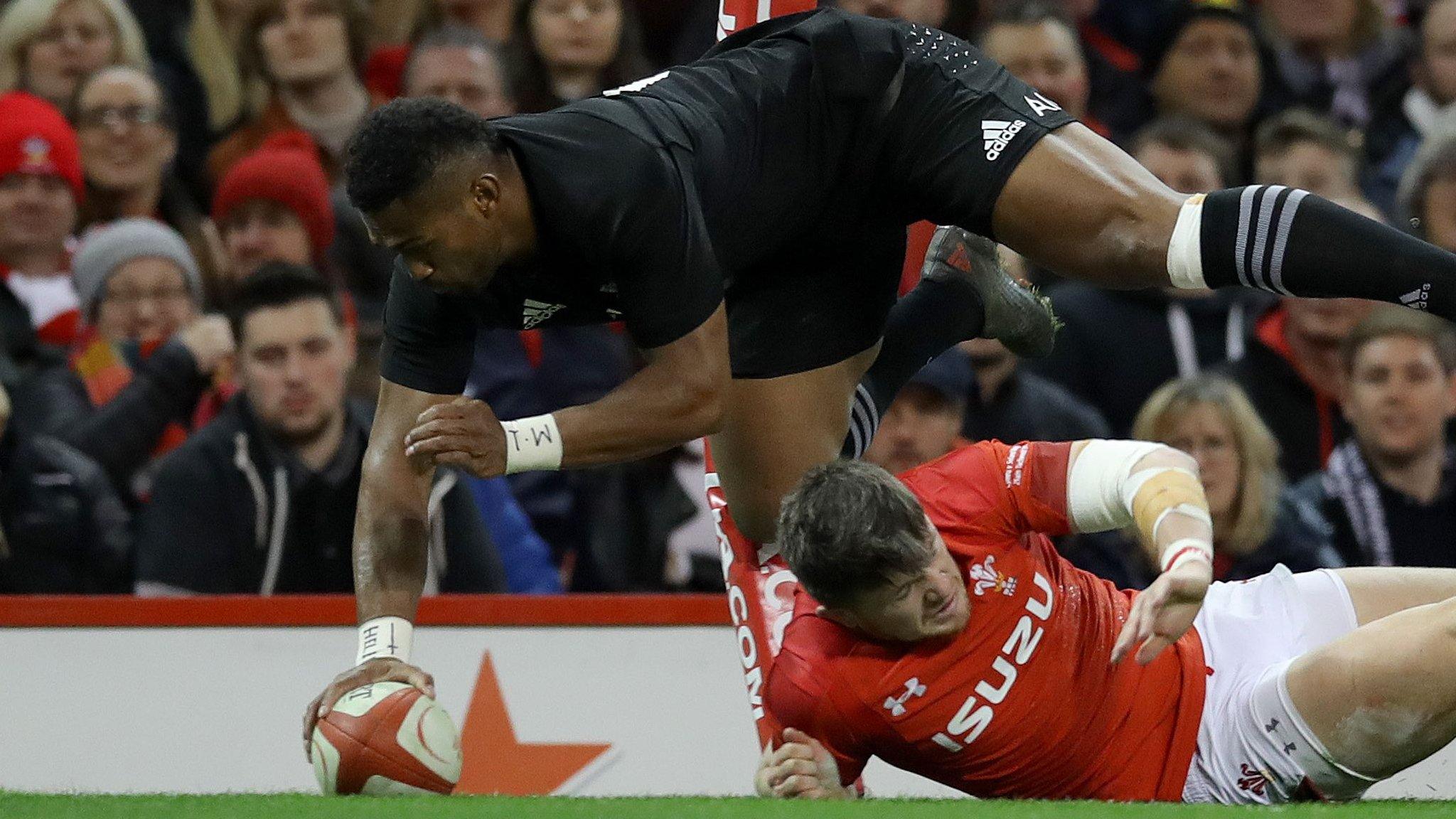
- Published25 November 2017
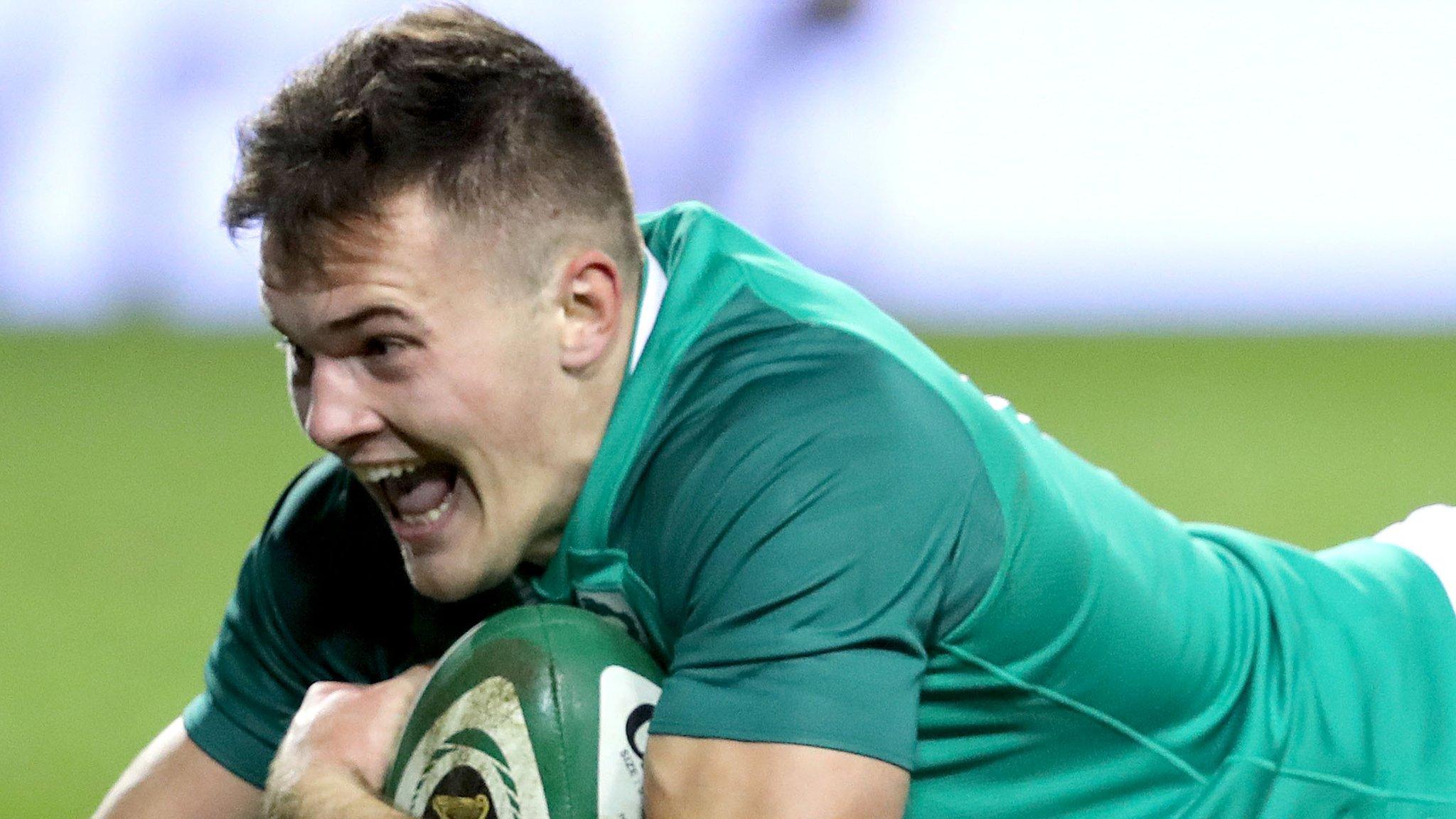
- Published25 November 2017
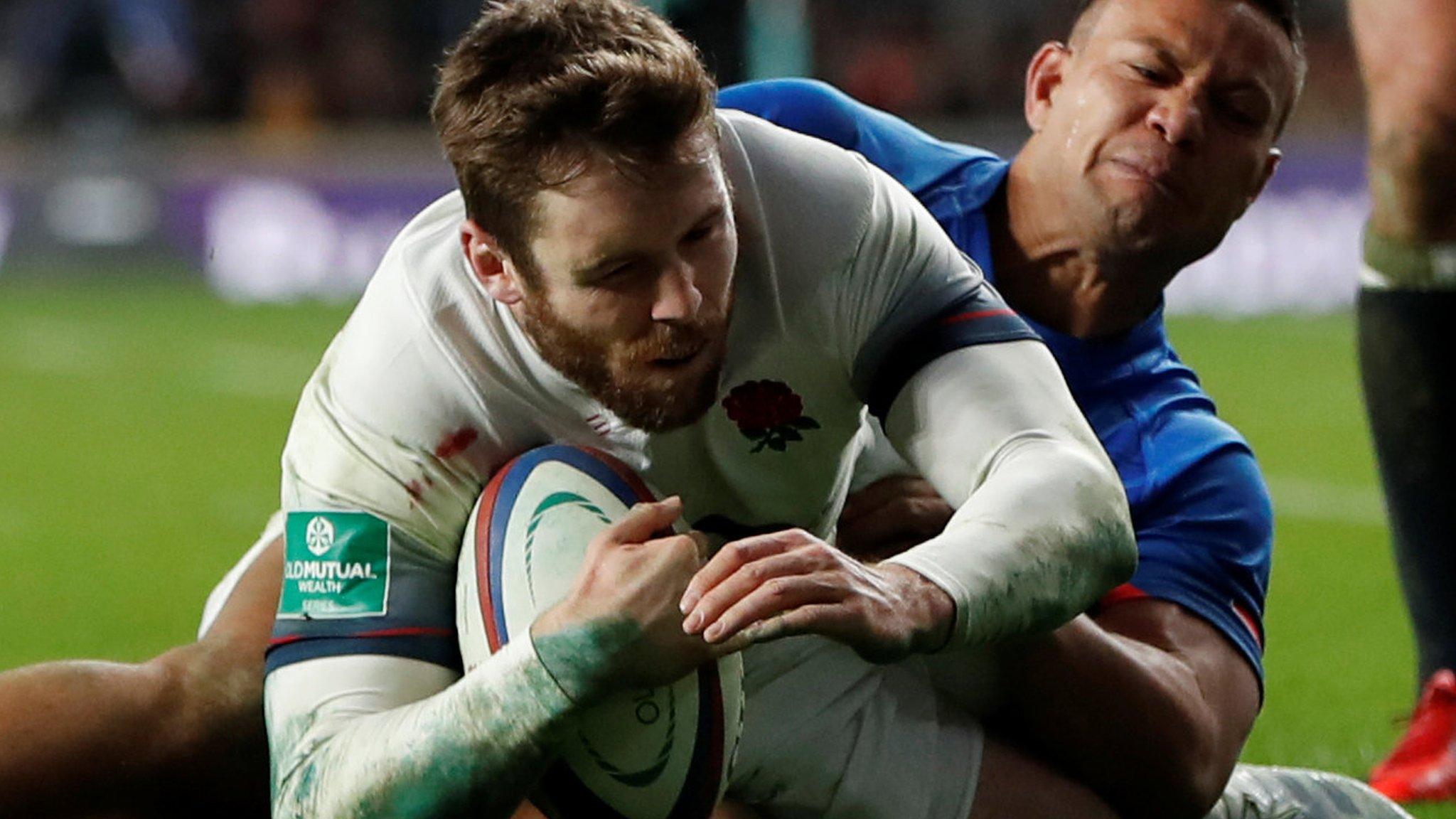
- Published25 November 2017
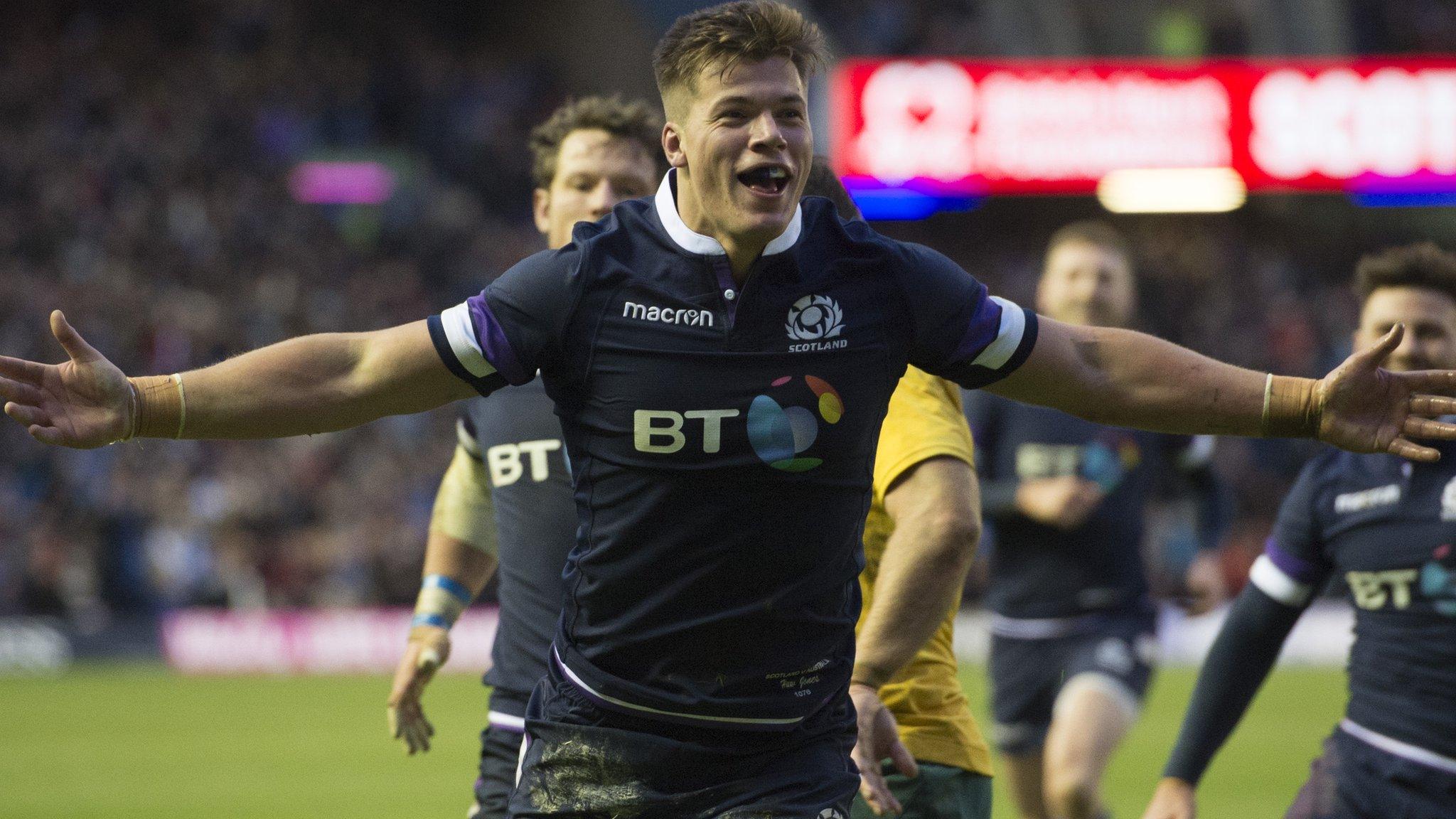
- Published21 November 2017
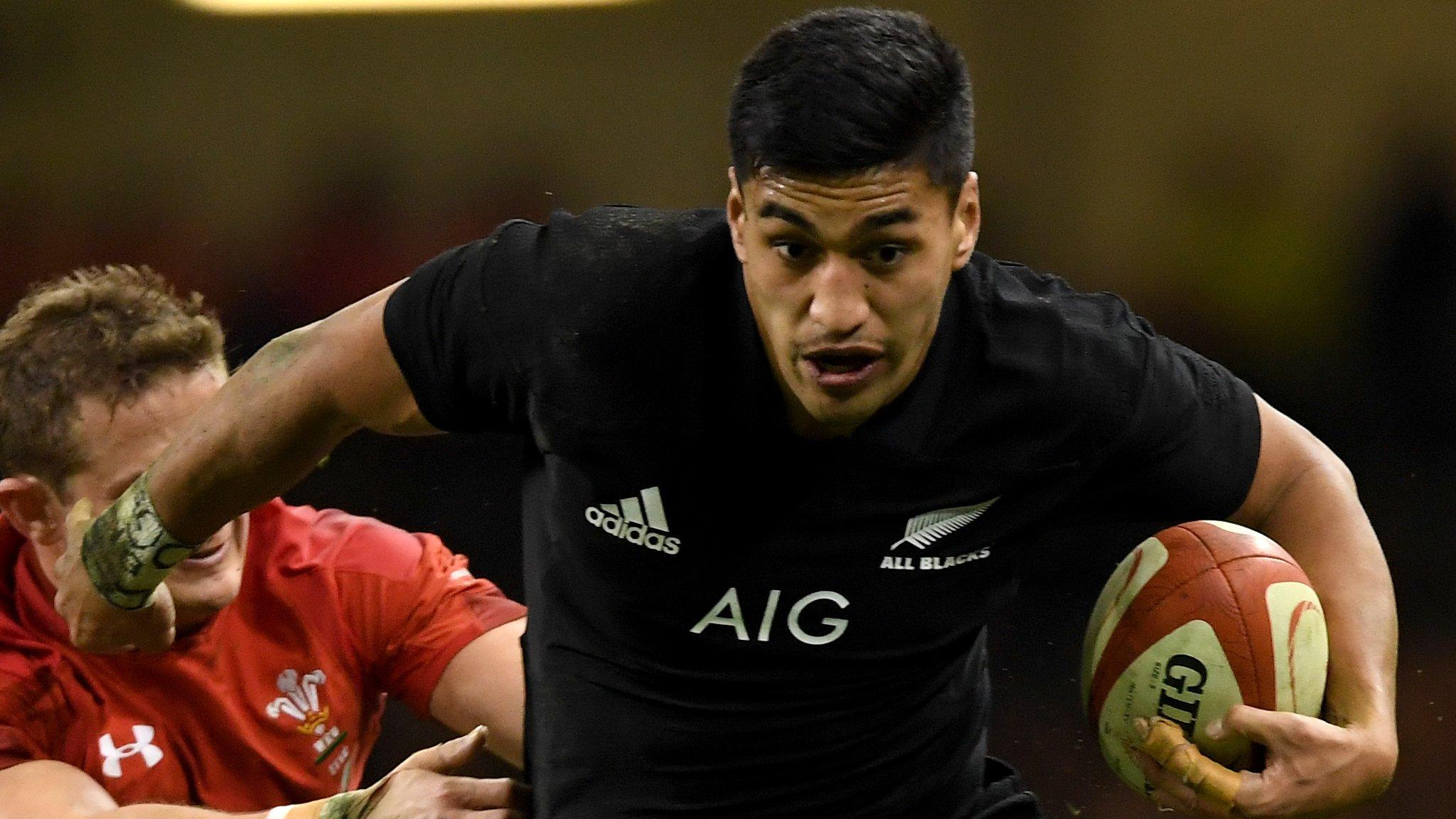
- Published25 March 2018
- Published15 February 2019
